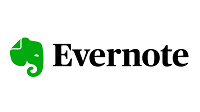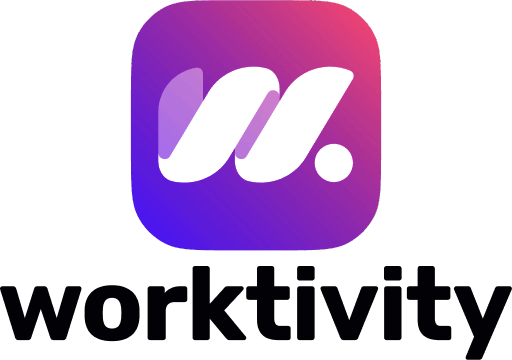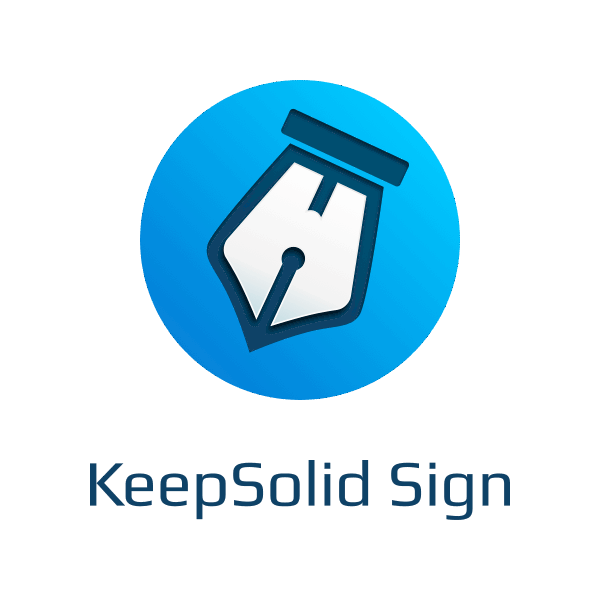Description

Evernote

Samepage
Comprehensive Overview: Evernote vs Samepage
Evernote
a) Primary Functions and Target Markets:
-
Primary Functions:
- Evernote is primarily a note-taking and organizational application.
- It allows users to create and store notes, which can include text, images, audio, and scanned documents.
- Offers features for task management, such as to-do lists and reminders.
- Supports synchronization across devices, enabling access to notes on computers, tablets, and smartphones.
- Provides a powerful search function, including the ability to search text within images and PDFs.
-
Target Markets:
- Individuals looking for a personal productivity tool to organize their notes and tasks.
- Professionals who need to manage meeting notes, collaborate on projects, and keep track of ideas.
- Students for organizing lecture notes, research, and study materials.
- Small to medium-sized businesses that require shared workspaces and team collaboration features.
b) Market Share and User Base:
- Evernote has been a leader in the note-taking app market for several years, with millions of users worldwide.
- While specific market share numbers can fluctuate, Evernote was one of the pioneering apps in its space and maintains a strong presence among note-taking applications.
- It faces competition from Microsoft OneNote, Google Keep, and other emerging productivity apps.
c) Key Differentiating Factors:
- Evernote's search capabilities are particularly strong, including text recognition within images.
- It offers a robust set of integrations with other apps, such as Google Drive, Slack, and Microsoft Outlook.
- The platform provides a variety of templates for different note-taking and productivity needs.
- Evernote's web clipper tool is a popular feature for saving information from webpages directly into notes.
- Pricing options include a free tier, along with premium subscriptions that offer more features like increased upload limits and offline access.
Samepage
a) Primary Functions and Target Markets:
-
Primary Functions:
- Samepage is a collaboration and project management tool.
- Combines file sharing, task management, and team communication, integrating everything into a single platform.
- Features include real-time document editing, task assignments, team chat, video conferencing, and calendar integration.
- Allows teams to create shared pages that can contain files, images, videos, and other media to support collaborative projects.
-
Target Markets:
- Team-centric organizations looking to streamline project management and enhance team collaboration.
- Small to medium-sized enterprises seeking an all-in-one collaboration and communication tool.
- Remote teams needing a centralized platform for managing projects and communications.
b) Market Share and User Base:
- Samepage, while not as well-known as some of its major competitors like Slack or Microsoft Teams, has carved out a niche for itself in the market.
- Its user base includes businesses and teams that prioritize an integrated collaboration environment over separate apps for communication and task management.
c) Key Differentiating Factors:
- The integration of communication and collaboration tools within a single platform is a standout feature, simplifying workflow management for teams.
- Combines various functions such as task management, file sharing, and communication, reducing the need for multiple apps.
- Its intuitive interface and ease of use are often highlighted by users who appreciate the minimal learning curve.
- Samepage offers flexible pricing models, including a free version with limited features and paid plans with advanced options like additional storage and admin controls.
Comparison
Evernote and Samepage, while both involved in productivity enhancement, target somewhat different markets and offer distinct functionalities. Evernote is more focused on individual productivity and advanced note-taking, whereas Samepage is designed for team collaboration and communication. Evernote excels with its powerful search and integration capabilities for individual users, while Samepage stands out with its comprehensive suite of tools aimed at facilitating teamwork and project management.
Contact Info

Year founded :
2008
Not Available
Not Available
United States
Not Available

Year founded :
2013
+44 333 050 9113
Not Available
India
http://www.linkedin.com/company/samepage-digital
Feature Similarity Breakdown: Evernote, Samepage
When comparing Evernote and Samepage, both platforms cater to productivity and collaboration but have different focuses that align with their core functionality: note-taking for Evernote and team collaboration for Samepage. Here's a breakdown:
a) Core Features in Common
-
Note-Taking and Document Creation: Both platforms allow users to create notes or documents. Evernote is primarily focused on note-taking with rich text formatting, while Samepage allows for document creation more as part of collaborative workflows.
-
File Attachments: Both applications support attaching files to notes or documents, making it easy for users to supplement their notes or collaborative spaces with additional resources.
-
Collaboration and Sharing: Evernote offers sharing capabilities to invite others to view or edit notes, while Samepage is designed specifically around collaboration, enabling team-based document editing and project sharing.
-
Task Management: Evernote includes task management features like checklists and reminders. Similarly, Samepage integrates task management more deeply into project workflows, providing tasks assignment, due dates, and progress tracking.
-
Cross-Platform Availability: Both Evernote and Samepage are available across multiple platforms, including desktop (Windows and macOS), mobile (iOS and Android), and web applications.
b) User Interface Comparison
-
Evernote: The interface is relatively straightforward, with a focus on the sidebar for navigating notebooks and notes. The note editor is central, emphasizing a clean and distractions-free writing environment. User experience is focused on the ease of capturing and retrieving information quickly.
-
Samepage: This platform’s interface is more complex due to its broader focus on team collaboration. It integrates chat, task lists, and document collaboration into a single UI, often appearing busier compared to Evernote. Samepage's design revolves around seamless teamwork and shared spaces, which may require a bit of a learning curve for users accustomed to simpler note-taking applications.
c) Unique Features
-
Evernote:
- Web Clipper: A powerful tool that allows users to clip web pages, articles, and PDFs directly into Evernote for later reference.
- Searchable Handwriting: Besides typed content, Evernote can search through handwritten notes if they are clear enough.
- Templates: Offers a variety of note templates for different needs such as meeting notes, project planning, etc.
-
Samepage:
- Integrated Chat and Video Conferencing: Samepage includes built-in chat and video call features enabling real-time communication within teams without needing third-party tools.
- Team Wiki: Allows teams to create a shared knowledge base or wiki for easy access to company-wide information.
- Dynamic Document Collaboration: Multiple users can edit documents simultaneously, with all changes updated in real-time, akin to Google Docs, but within the larger suite of collaborative tools.
In summary, while both platforms share common features rooted in productivity, they serve slightly different purposes. Evernote is more about personal organization and note-taking, whereas Samepage emphasizes team collaboration and project management.
Features

Not Available

Not Available
Best Fit Use Cases: Evernote, Samepage
Evernote
a) For what types of businesses or projects is Evernote the best choice?
Evernote excels in scenarios where personal productivity, information organization, and note-taking are paramount. It's particularly well-suited for:
-
Individual Professionals: Freelancers, writers, and researchers who need a robust tool for organizing notes, documents, and research materials.
-
Small Teams or Startups: Teams that require a simple, effective way to share and organize information without the complexity of more extensive project management tools.
-
Education and Academia: Students and educators can use Evernote for organizing lecture notes, research, and course materials into structured, searchable digital notebooks.
-
Personal Life Management: Individuals looking to manage their personal life, including to-do lists, receipts, and other personal documents, in a digital format.
Samepage
b) In what scenarios would Samepage be the preferred option?
Samepage is an excellent choice for businesses and projects that focus on collaboration and team-based work. It's ideal for:
-
Remote Teams: Organizations with distributed teams that require a seamless way to collaborate in real-time across documents, tasks, and conversations.
-
Project-Based Work: Teams engaged in complex projects where coordination between multiple team members, planning, and task management is crucial.
-
Creative Agencies: Businesses that need to integrate content creation, feedback, and revisions within one platform, facilitating creative workflows.
-
SMBs and Nonprofits: Small to medium-sized businesses and nonprofits that need a comprehensive collaboration solution integrating chat, task management, and file sharing.
Industry Verticals and Company Sizes
d) How do these products cater to different industry verticals or company sizes?
-
Evernote:
- Industry Flexibility: While it is predominantly used in academia, writing, and creative industries due to its strong note-taking and organizational features, it remains highly adaptable across various sectors where personal productivity tools are necessary.
- Company Size: Primarily suits individuals and small teams. It’s effective for smaller organizations due to its simplicity but may not suffice for larger enterprises needing extensive collaboration and communication features.
-
Samepage:
- Industry Flexibility: Targets a broader range of industries, particularly those requiring high levels of collaboration, such as technology companies, marketing agencies, and consulting firms.
- Company Size: Designed to scale with businesses, fitting well with small to medium-sized enterprises. It can serve larger organizations as well, particularly those with multiple remote teams or project-focused work.
In summary, Evernote is best for individual-focused productivity and organization, whereas Samepage shines in team collaboration and project management, especially for remote or creative work settings. Each tool's strength lies in aligning with specific business needs, whether that’s organizing personal notes or facilitating dynamic team collaboration.
Pricing

Pricing Not Available

Pricing Not Available
Metrics History
Metrics History
Comparing undefined across companies
Conclusion & Final Verdict: Evernote vs Samepage
To provide a comprehensive conclusion and verdict for Evernote and Samepage, let's examine and analyze each product based on their features, pricing, scalability, user interface, and collaboration capabilities.
a) Best Overall Value
Samepage offers the best overall value for users who are primarily focused on team collaboration and project management. It is designed to facilitate real-time collaboration through features like task management, file sharing, messaging, and video conferencing, all within a single platform. This makes Samepage an excellent choice for teams that need an integrated solution to manage projects and communicate effectively.
Evernote, on the other hand, is a powerful tool for individual note-taking and information organization. Its strengths lie in personal productivity, allowing users to capture and organize ideas, documents, and web content seamlessly. For individuals or small teams focused on information capture and personal organization, Evernote provides substantial value.
b) Pros and Cons
Evernote:
Pros:
- Robust note-taking and organizational tools.
- Strong search capabilities and integration with numerous third-party apps.
- Easy capturing of information from various sources (web, documents, images).
- Works well across multiple devices and platforms.
Cons:
- Limited collaboration features compared to Samepage.
- Can become costly for premium features.
- Might be overkill for users solely seeking basic note-taking features.
Samepage:
Pros:
- Comprehensive collaboration tools with messaging, task management, and document sharing.
- Integrates well with other productivity apps for enhanced functionality.
- Supports real-time collaboration with intuitive communication features.
- Ideal for project management and team-centric tasks.
Cons:
- May not be as strong in individual note-taking or personal organization as Evernote.
- Could be overwhelming for individuals or smaller teams not requiring extensive collaboration tools.
- Interface may have a learning curve for users unfamiliar with integrated platforms.
c) Recommendations
For users trying to decide between Evernote and Samepage, the choice largely depends on their primary needs:
-
Choose Evernote if:
- Your focus is on individual note-taking, information capture, and organization.
- You want powerful search and integration capabilities.
- You value the ability to capture and store information from a wide array of sources efficiently.
-
Choose Samepage if:
- You need a solution that emphasizes team collaboration, communication, and project/task management.
- You are looking for an all-in-one tool to manage projects and facilitate team discussions.
- Your team requires real-time collaborative features for effective workflow.
Consider your specific needs, team size, and the importance of collaboration versus personal organization when selecting between these two platforms. Trial versions of both could provide additional insights into which tool better suits your workflow.
Add to compare
Add similar companies




